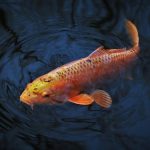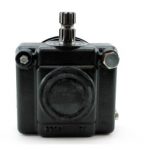LawnEQ is a trusted source for genuine OEM Parts- Shop for the part you need from your favorite manufacturers such as Landpride, Toro, and more today on our OEM Parts Lookup Tool!
We can’t stress how important water is to the life of your lawn and garden. Without it, your plants will shrivel and die, and you’ll be left with a yard full of dead brown grass and dirt. The thing is, how you care for your lawn could be damaging the quality of your water in the local ecosystem.
Run-off versus Leaching
There are two ways that debris and chemicals from your lawn will work their way into the water in your ecosystem.
The first of these is run-off. In this case, water runs off of your lawn and into the local ecosystem, including storm drains, creeks and ponds. This water can physically carry debris such as grass clippings, leaves, and more. It can also carry chemicals with it.
The second way is through leaching. This won’t carry debris into the ecosystem, but it is more likely to move chemicals into the ecosystem. Leaching often comes through the lawn and garden getting too much in the way of water. This water will wash the chemicals down and then help to absorb them into the ground. It essentially fast-tracks the nutrients down into the ground, keeping the lawn and plants from absorbing them and instead pushing them into the water system.
Preventing Run-off
Run-off can be very damaging to your local ecosystem. We’ve actually discussed ways to help prevent it in the past, when we looked at bioswales and rain gardens. These are two very good ideas, but there are many more ways to prevent run-off from effecting your local water.
- Clean up after yourself: Collecting debris such as grass clippings and leaves before they have a chance to be swept into the creeks and storm drains is a great way to start.
- Use rain barrels: By capturing rainwater before it can make it to the lawn, you can prevent the water from flooding the lawn. This prevents run-off from happening.
- Reduce hard surfaces:Hard surfaces help to gather water and move it along, creating a flow instead of allowing the water to seep in to the ground.
Avoiding Polluting Through Leaching
The best way to avoid leaching is to keep from putting down too much water. This includes activities such as watering soon after the rain. Another way to take care of leaching is to avoid putting down too much in he way of chemicals. Making sure to use just the right amount will make for great efficiency, and reduce the loss through leaching. Also, make sure you aren’t over-irrigating – particularly if you are using an automatic system, your schedule may cause your lawn to get sodden and encourage leaching.

Algae on Pond, courtesy of Flickr user Karen Roe
How Can These Damage Your Local Ecosystem?
So what can you expect to see if you don’t keep debris and chemicals out of your local water? Well, the picture at right is one thing. Quite often, debris from run-off encourages algae to develop in standing bodies of water. This can choke up a body of water pretty well.
So make sure to treat your grounds right and your water right. Treating your water right will be better for you, your local climate, and your lawn and garden in the long run.






